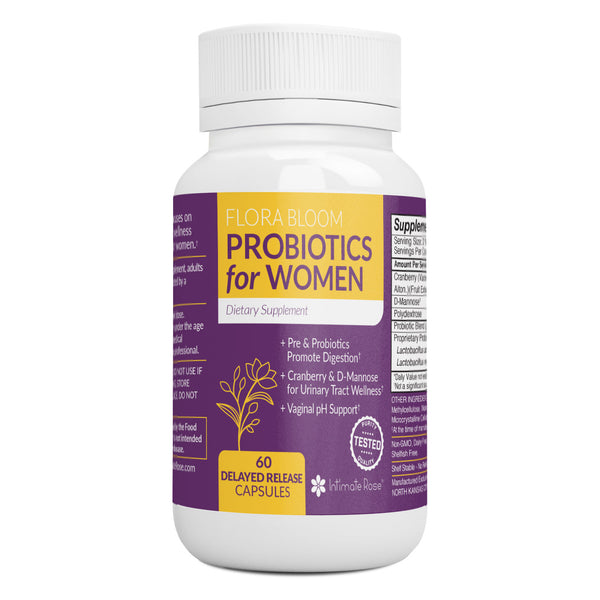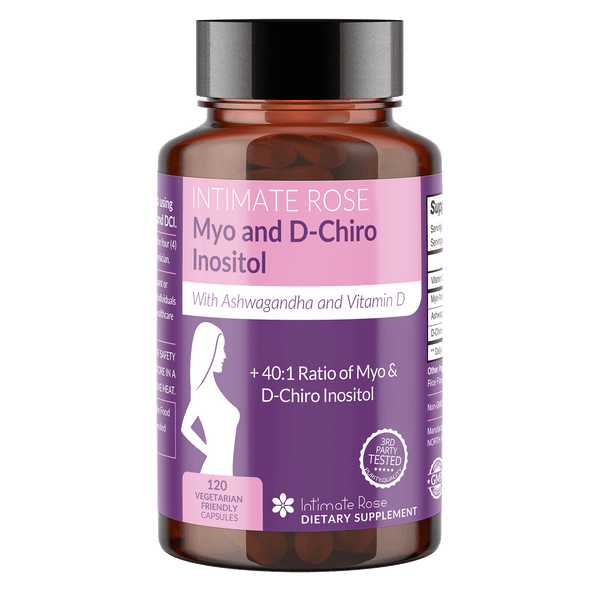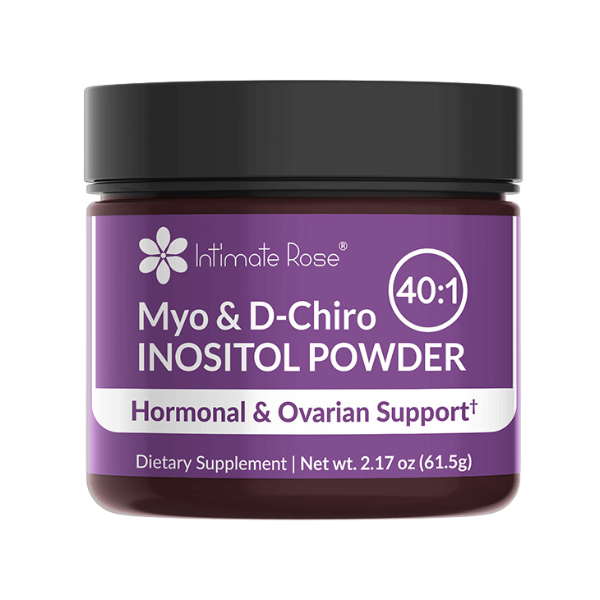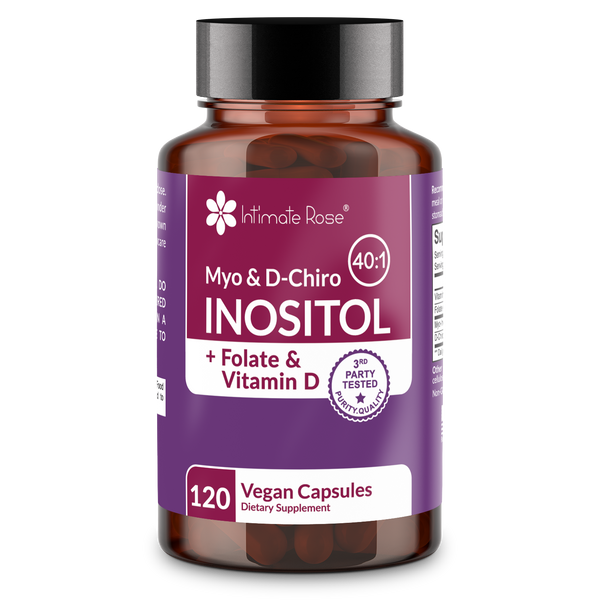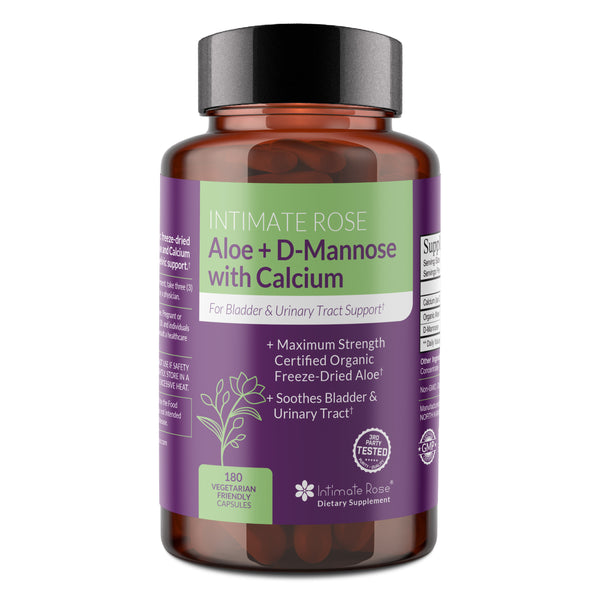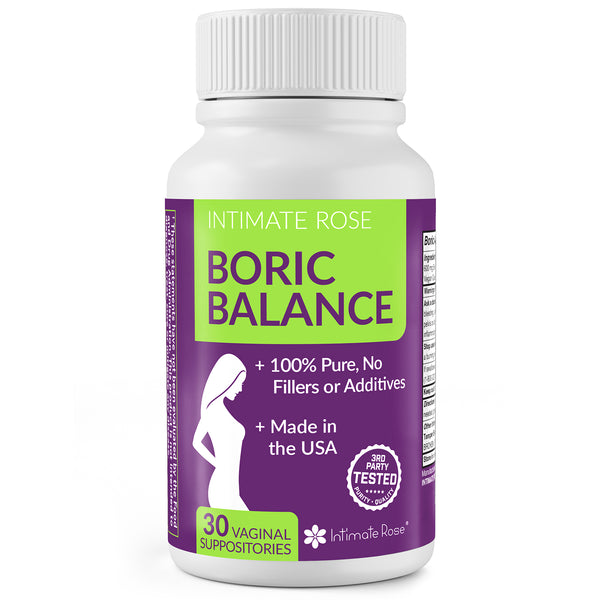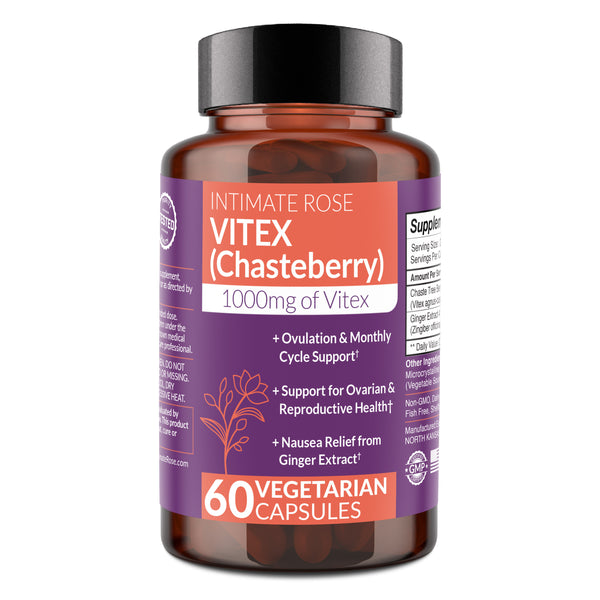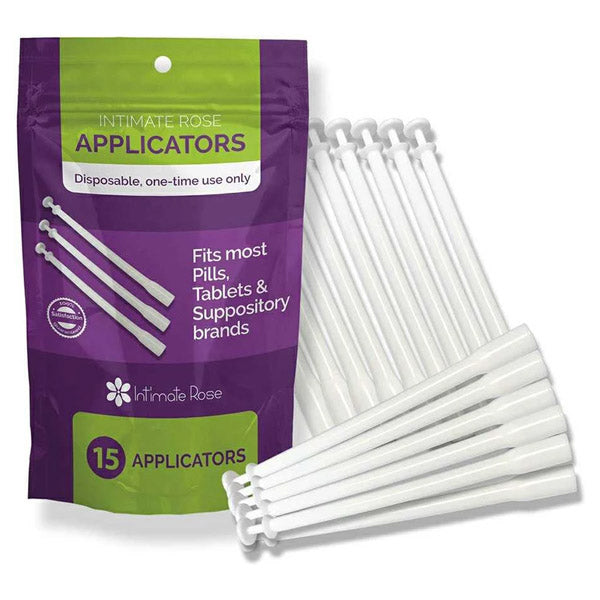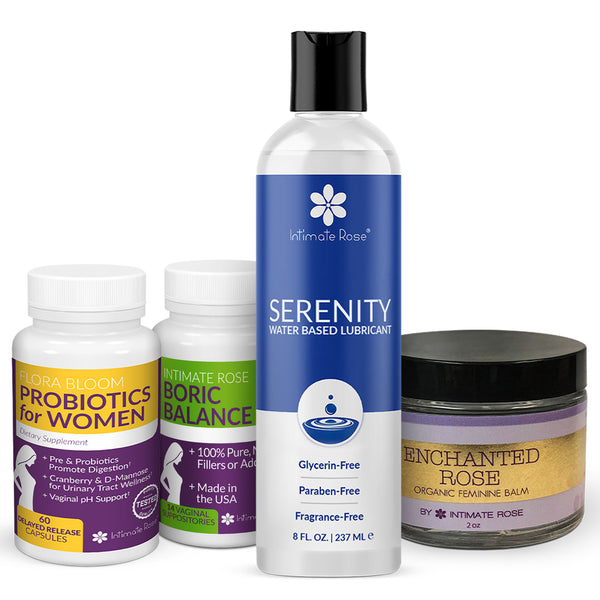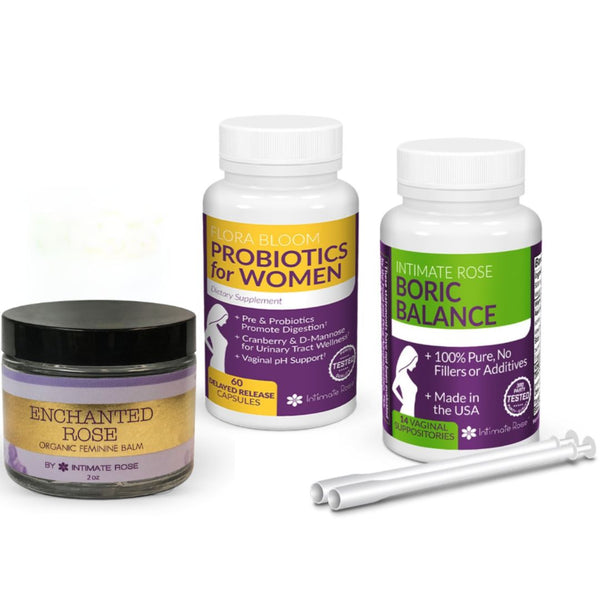Estrogen and progesterone are foundational hormones for sexual and reproductive development in women. Working together, these hormones help women’s sexual characteristics to mature during puberty as well as manage fertility and menstruation up to menopause.
Estrogen also keeps cholesterol under control, encourages bone health, and balances moods, heart function, and skin tissues. Low estrogen is usually a sign of the change women go through during menopause.
Learn more about hormones for sexual and reproductive development in women
How to Increase Estrogen Naturally
- Eat More Phytoestrogen Rich Foods
- Take Your B-Vitamins
- Get More Vitamin D
- Try Chasteberry
- Black Cohosh
- Add Evening Primrose Oil to Your Routine
Symptoms of low estrogen can include mood swings, dry skin, trouble sleeping, irregular periods, low libido, hot flashes, and vaginal dryness.
Thankfully, there are a number of reliable natural remedies to increase estrogen in the body. Either by directly creating estrogen or by replicating the effects of estrogen.
Read on, for 7 of the most natural ways to increase estrogen.
1. Phytoestrogen-Rich Foods
Phytoestrogens, found in plants and plant-based foods, have a similar structure to estradiol, which is the strongest of the estrogen hormones. Upon entering the body, phytoestrogens are recognized by estrogen receptors and mimic the effects of estrogen in the body. You can learn more about these estrogen boosting foods.
Although their effects may be milder than pure estrogen, phytoestrogens are thought to help the body function better during times of estrogen deficiency.
Phytoestrogen-rich foods include soybeans, flax seeds, and chickpeas, as well as dried apricots, raisins, and dates.
2. B Vitamins
Because B vitamins play a vital role in the creation of estrogen, low levels of B vitamins can result in reduced production of estrogen. Vitamins B2 and B6, in particular, are associated with healthy estrogen levels.
In a recent study, for example, researchers tracked levels of B vitamins to the risk of breast cancer in menopausal women. The results indicated that women with higher levels of B2 and B6 showed lower risks of breast cancer.
This connection is believed to be due to the positive impact that B vitamins have on estrogen levels.
3. Vitamin D
Working in tandem, vitamin D and estrogen not only reduce the risks of cardiovascular disease but the presence of vitamin D in the body also has an impact on the production of estrogen. In one study, the link between vitamin D levels and estrogen was investigated.
Of the 616 menopausal women aged between 49 and 86 who took part, none were taking vitamin D or estrogen supplements. The results showed a “positive correlation” between vitamin D and estradiol (the strongest estrogen hormone).
In other words, women with high levels of vitamin D also had high levels of estradiol. Whereas the women with lower levels of vitamin D had lower levels of estradiol. Indicating that a vitamin D supplement would improve the production of estrogen.
4. Chasteberry (also known as Vitex Agnus-Castus)
Vitex agnus-castus is the Latin name for Chasteberry, the dried fruit from the chaste tree. Its benefits as a natural remedy for women’s health were first documented over 2500 years ago when the Greeks and Romans used it to treat menopausal symptoms.
Acting as an adaptogen to stabilize the body’s stress response, a chasteberry supplement, like Vitex Chasteberry Supplement from Intimate Rose helps the pituitary gland to rebalance estrogen and testosterone during all three stages of menopause (perimenopause, menopause, and post-menopause).
Research on the hormone-balancing abilities of chasteberry shows that it significantly reduces menopausal symptoms such as mood swings, breast tenderness, pelvic discomfort, interrupted sleep, as well as hot flashes by rebalancing estrogen and testosterone. Our Vitex Chasteberry Supplement was formulated by pelvic health expert, Dr. Amanda Olson. Learn more about this life changing product.
Vitex (Chasteberry): Natural Hormone Balance and PMS Support
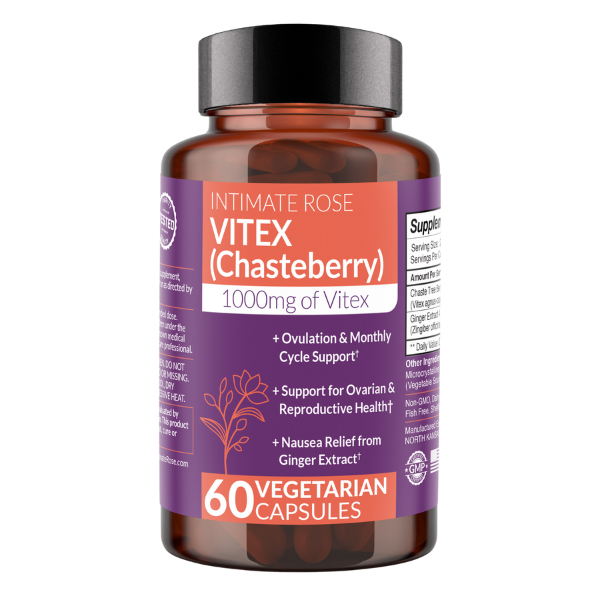
5. Black Cohosh
Black Cohosh is a traditional Native American herb that has been used to treat PMS, hot flashes, and menopausal symptoms for centuries. In a 2012 study to evaluate the effectiveness and safety of black cohosh for treating menopausal symptoms, researchers found that it stimulates estrogen receptors when estrogen is low during menopause.
6. Evening Primrose Oil
Due to its high levels of omega-6 fatty acids, evening primrose oil has been used as an ancient herbal remedy for treating PMS and menopause. Though there is little current-day research on the advantages of taking evening primrose oil for increasing estrogen, it has been anecdotally reported to help.
For example, in a 2015 study 48% of women who ceased using hormone replacement therapy and began taking an evening primrose oil supplement instead, reported a reduction in the symptoms of low estrogen during menopause.
Conclusion
To determine if you have low estrogen levels, first schedule a blood test or urine test with your medical practitioner. If you take medication for another condition, discuss adding any supplements with your doctor, as some can react with other drugs.
As well as the foods, vitamins, and herbal remedies discussed above, regular exercise, as well as a healthy diet, and a regular bedtime can significantly help manage hormone imbalances during menopause. Lastly, if you notice any side effects after beginning herbal supplements for low estrogen, see your doctor for further guidance.

Shop our Full Collection
FAQs
At what age does estrogen drop?
Estrogen levels typically begin to decline in women during their 40s, leading up to menopause, usually between ages 45 and 55.
Which food is highest in estrogen?
Soybeans and soy products are rich in phytoestrogens, plant compounds that mimic estrogen in the body.
How can I increase my estrogen quickly?
Consuming phytoestrogen-rich foods like soy products and flaxseeds, along with vitamin D and B vitamins, may help boost estrogen levels naturally.
How do you fix low estrogen?
Addressing low estrogen can involve lifestyle changes, dietary adjustments, and consulting a healthcare provider for potential hormone replacement therapy.
Does vitamin D increase estrogen?
Adequate vitamin D levels are associated with higher estrogen levels; ensuring sufficient vitamin D intake may support estrogen production.
What is the best natural estrogen replacement?
Phytoestrogens from foods like soy and flaxseed, along with herbal supplements such as black cohosh and chasteberry, are commonly used as natural estrogen replacements.
How do I check my estrogen?
Estrogen levels can be assessed through blood tests ordered by a healthcare provider to evaluate hormonal balance.
References
National Center for Biotechnology Information - Modulation of estrogen synthesis and metabolism by phytoestrogens in vitro and the implications for women's health - https://pubmed.ncbi.nlm.nih.gov/30090542/
The Journal of the North American Menopause Society - The synergistic effects of vitamin D and estradiol deficiency on metabolic syndrome in Chinese postmenopausal women - https://journals.lww.com/menopausejournal/Abstract/2019/10000/The_synergistic_effects_of_vitamin_D_and_estradiol.15.aspx
National Center for Biotechnology Information - Black cohosh (Cimicifuga spp.) for menopausal symptoms - https://www.ncbi.nlm.nih.gov/pmc/articles/PMC6599854/
National Center for Biotechnology Information - Use and perceived efficacy of complementary and alternative medicines after discontinuation of hormone therapy - https://www.ncbi.nlm.nih.gov/pmc/articles/PMC4470524/

Shop our Full Collection






